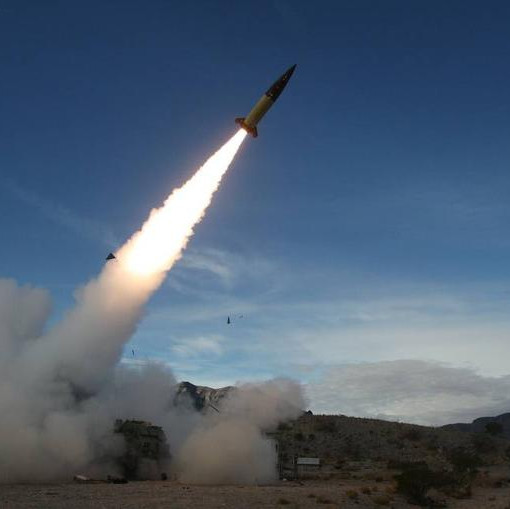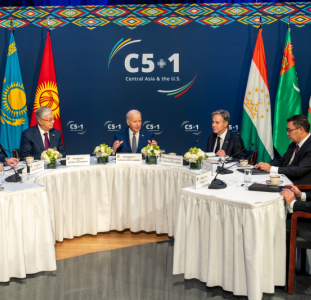Top stories from the Russian press on Monday, December 13th, prepared by TASS
Izvestia: Russian senior diplomat tackles dangers of Ukraine’s NATO bid, visa issues
Moscow would like to hold consultations with Washington on the situation with diplomatic missions and visas, and the corresponding proposals have already been submitted to the American side, Russian Deputy Foreign Minister Sergey Ryabkov said in an interview with Izvestia. During the conversation, he evaluated the prospects of changes in Russia-US ties and explained why NATO cannot continue its eastward expansion. Responding to a question on the predictability in Russian-American relations, he noted: "There is a one-sided negative predictability yet everything is absolutely unpredictable in terms of some perspective of improving relations. This is a sad conclusion as a result of a long journey we have traveled with both the current administration, and with Trump, and with Obama. It’s not that problems had begun yesterday. They are related, for the most part, with the US aspiration to negate Russia as an independent key factor of international life, and impose on us its own approaches to a whole range of issues, including how we should live in our own country."
When touching upon the mounting pressure around Ukraine, the senior diplomat explained that "this is above all Washington’s geopolitical project, an attempt to widen the sphere of its own influence, expanding its tools to enhance its positions which, according to US aspirations, will help them dominate in this region of the world. This is, of course, a method to create difficulties for us, impinging on our security. We are saying openly: we have certain red lines that we won’t allow anyone to cross; we have a very clear requirement - I think, everyone heard the Russian president’s signal that Moscow needs maximally reliable legal guarantees of its safety."
The senior diplomat noted that Moscow will continue to highlight for NATO members that the alliance’s security won’t increase in the event of its expansion and the consequences of this step would be grave. According to him, the alliance has no arguments for the necessity of its eastward expansion. "There are no arguments. Moreover, they are attempting to deny the legitimacy of the question as to why NATO should move somewhere eastward. Allegedly, out of principle, they deny the possibility of discussing this subject. Yet, this is a mistake which may lead to the weakening of their own security," the senior diplomat cautioned.
He pointed out that Russian diplomats submitted numerous offers to their US colleagues regarding consultations on visa issues, yet so far there was no response, just accusation and ultimatums. "We are not hindering anything. We simply cannot unilaterally issue visas to the Americans while our personnel cannot enter the US because the issuance of visas to diplomatic employees and the holders of business passports has been essentially frozen," he explained. "We are again urging the Americans to tackle this issue, and to get concerned with the intolerable situation. It is not only our compatriots who suffer here, but also US citizens themselves who cannot receive timely service as well," the senior diplomat added.
As for the timing of a future Putin-Biden summit, the diplomat pointed out that no exact date had yet been set. "Yet, the important thing is that an understanding was reached on the necessity to continue contact, whether it’s a video format, a phone conversation, and, of course, a face-to-face meeting. Nevertheless, it is too early to talk about specifics," the diplomat concluded, adding that Russia’s Foreign Ministry is closely working on implementing the agreements reached by both presidents during their December 7 talks.
Vedomosti: G7 threatens Russia with harsh consequences in case of ‘invasion of Ukraine’
The Russian Foreign Ministry revealed the essence of its discussion proposals to NATO countries in order to ensure peace and security in Europe. However, G7 countries did not react to them, though US President Joe Biden vowed to do so after meeting with his Russian counterpart Vladimir Putin. Nevertheless, the G7 threatened Moscow with major consequences if it invades Ukraine.
According to Russia, NATO should rescind the promises of its 2008 Bucharest summit on including Ukraine and Georgia in the alliance and legally enshrine the non-deployment of armament systems threatening Russia. The December 10 proposals also include the coordination of drills, above all, in the Black and Baltic Seas, the restoration of contacts between defense ministries, and the US joining the Russian moratorium on non-deployment of intermediate-range missiles in Europe.
That said, the December 12 meeting of G7 foreign ministers in the UK approved a statement, saying that "Russia should be in no doubt that further military aggression against Ukraine would have massive consequences and severe cost in response."
Dialogue between Moscow and Washington on some issues may be successful theoretically, yet it is not clear how to talk to NATO which includes countries that are extremely antagonistic to Russia, Fyodor Lukyanov, editor-in-chief of the Russia in Global Affairs magazine says. The expert noted that a decisive breakthrough could be a meeting between the representatives of Russia, the US and four NATO countries. Such a gathering, according to the commentator, would demonstrate that the West recognizes the existence of a problem in relations and not Russia as a problem.
Research Fellow at the Center for International Security, Institute of World Economy and International Relations of the Russian Academy of Sciences Dmitry Stefanovich thinks that it is unclear how effective these talks would be, while the task of forming a new security architecture in Europe is long overdue. According to Director General of the Russian International Affairs Council Andrei Kortunov, the moratorium on missiles in Europe is the most promising offer, however, it is not realistic to ratify it legally in the shape that Russia wants, just as it is not possible to rescind the decisions of the Bucharest summit. The expert thinks that Moscow’s proposals that are unacceptable to the West are an initial point of further bargaining.
Nezavisimaya Gazeta: Zelensky ready to announce referendum on issues of war and peace
On Monday, Assistant Secretary of State for European and Eurasian Affairs Karen Donfried will begin her working visit to Kiev and Moscow, on Wednesday she will head to Brussels planning to discuss the diplomatic progress on ending the Donbass conflict by implementing the Minsk Accords. This intention alarms Kiev, and against this background Ukrainian President Vladimir Zelensky announced that a referendum on the issues of Donbass, Crimea and peace in general is possible.
Ukrainian political scientist Victor Taran wrote on his blog that "judging by the rhetoric and the actions (following the Putin-Biden summit as well as the talks between Biden and Zelensky) there is a high probability that Russia and the US have agreed to jointly pressure Ukraine into implementing the Minsk Accords."
Kiev is worried that the two leaders had agreed on the autonomy of the Donetsk and Lugansk People’s Republics in exchange for decreasing tension on Ukraine’s borders. According to the expert, Zelensky’s team comprehended all the risks of this scenario and is not ready to implement it and the announced referendum is a sort of a counterargument.
Political scientist Vladimir Fesenko noted that this week, a meeting is planned in Brussels between the Ukrainian president and his French counterpart Emmanuel Macron along with Germany’s new Chancellor Olaf Scholz. "It seems that the US will participate more actively in talks on Donbass. And later we’ll see in which format," he noted.
Former Chairman of the Verkhovna Rada Dmitry Razumkov told the Ukraine-24 TV channel that talks on Ukraine are currently being conducted at various levels between the US and the EU, noting that what alarms Kiev is that "the positions are not being coordinated initially with the Ukrainian side and the outcome of these talks are being conveyed to us post factum." The politician noted that the referendum wouldn’t change the general picture, while the leader of the European Solidarity party and ex-Ukrainian President Pyotr Poroshenko thinks that the referendum is a dangerous idea, noting that two or three regions may be of a different opinion than the rest and it would lead to the repetition of the 2014 events in Crimea.
Nezavisimaya Gazeta: Military reconnaissance active near Crimea and Donbass
The situation remains complex in the waters of the Azov and Black Seas despite the recent Putin-Biden virtual summit. The Ukrainian Navy’s ship Donbass in the Azov Sea began moving towards the Kerch Strait without appropriate notifications, while the Ukrainian General Staff has classified information on using Bayraktar drones and anti-tank Javelin missiles in Donbass.
Kiev’s Western allies continue to monitor Ukraine’s eastern borders as exemplified by the sorties of an American RC-135W reconnaissance plane which appeared there for the first time in modern history while previously this territory was monitored by US and NATO Global Hawk drones stationed in Sicily.
Experts note that following the Putin-Biden virtual summit, Kiev changed its information policy on the events in the country’s southeast. "Media reports that the Ukrainian General Staff had classified information on the use of Bayraktar drones and Javelin missiles in Donbass, apparently, are related not so much with Kiev’s desire not to attract attention to its military activity in the region but with Washington’s demand not to demonstrate operations of foreign, particularly, American, lethal weapons in the conflict zone," military expert Alexander Ovchinnikov told the newspaper. He noted that the presence of Javelin anti-tank missiles in Donbass is highly dangerous, at the same time pointing out that Chief of the Russian General Staff Valery Gerasimov had already warned Ukraine and its allies that "any provocations by the Kiev regime using force to settle the strife in Donbass will be thwarted."
Izvestia: Alcoholism-fighting drug lowers mortality from COVID-19
A drug used to treat alcohol dependency for the past 60 years turned out to be effective against the coronavirus infection, according to a group of American scientists from Harvard Medical School and Boston Children’s Hospital after the analysis of data of over 2,000 patients. Disulfiram decreased the number of COVID-19 cases by 34% and prevented fatal outcomes among those who got infected. It is presumed that the drug affects the enzyme necessary for SARS-CoV-2 to proliferate. It is interesting that last summer, Russian scientists from the Higher School of Economics and the Zelinsky Institute of Organic Chemistry were the first ones to notice the drug’s potential in the fight against the coronavirus infection using molecular modeling.
Stanislav Otstavnov of the Moscow Institute of Physics and Technology emphasized that the possible use of utilizing disulfiram against COVID-19 was justified by modeling in the first months of the pandemic.
Head of the Organic Chemistry Department of the Zelinsky Institute Igor Svitanko told Izvestia that research into the mechanism of this drug’s action is still in progress. Its effectiveness and safety are still being studied and there is no conclusive data yet, he added.









